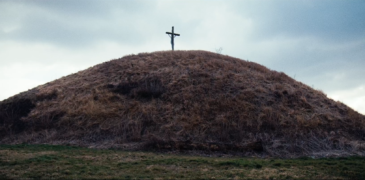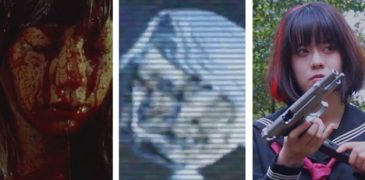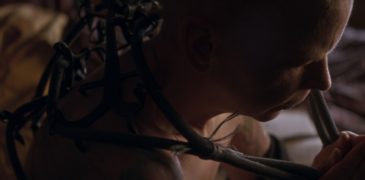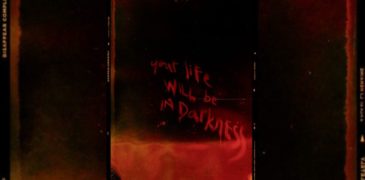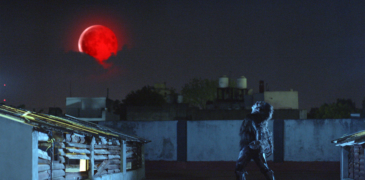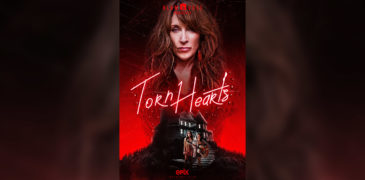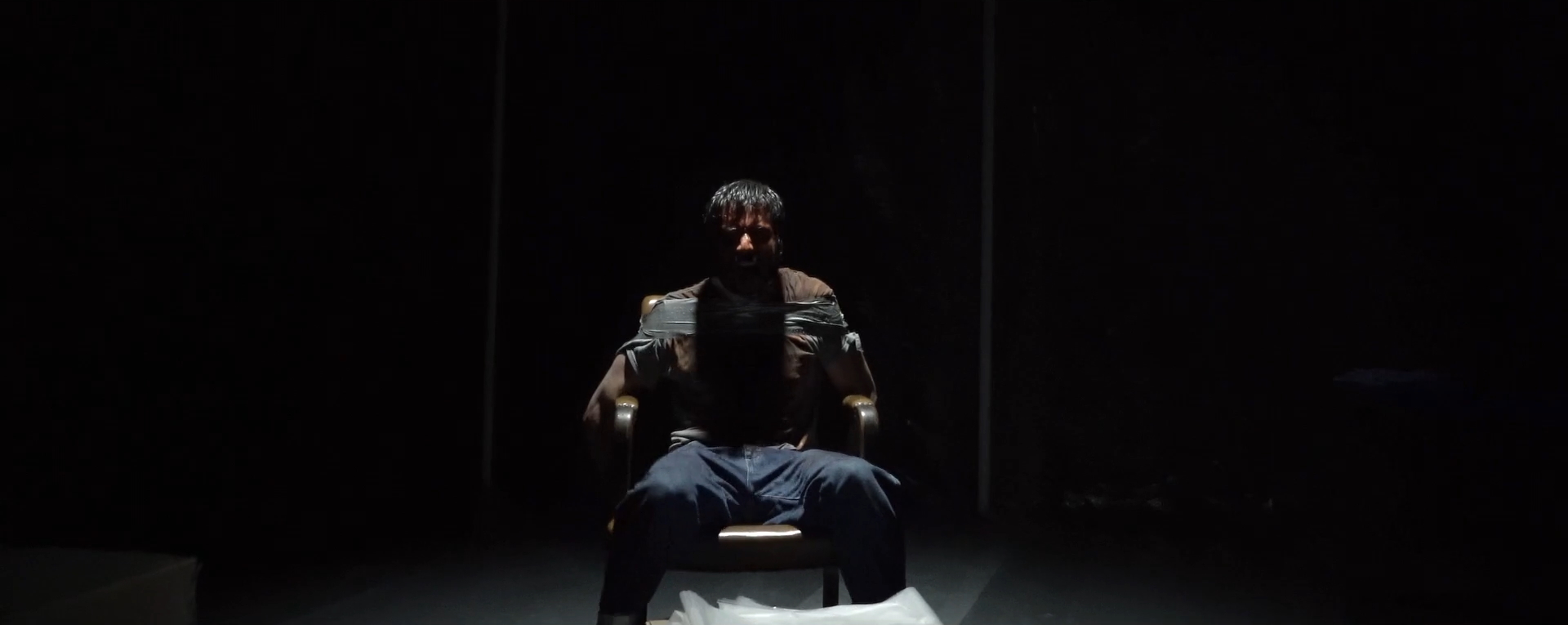
Shot in the Dark is the directorial debut of Keene McRae. Co-written by Kristoffer McMillan and Lane Thomas, it should be noted that all three also perform roles in the film. Perhaps most notably, McMillan takes on the lead role of William Langston. Will has abandoned his small-town roots for the glamorous life of a famous author, but a recent tragedy has left him grief-stricken and haunting his former home. The film intercuts Will’s struggle with a serial killer story, which ties up through a number of flashbacks to earlier years exploring the drama of life in a rural city; these weave a poignant message that is as much about obsession as it is about regret. Unfortunately, the nonlinearity of its narrative seemed to occasionally undermine the stronger elements of the movie and consequently stumbles.
Will’s story is one that should be intimately relatable for most people. Though the particulars are excluded until later on, we’re told from the first moments that Will is struggling with some pretty heavy grief after the loss of a loved one. The small-town angle of the film really affected me personally, evoking a certain familiarity as such a sentimental setting should. I grew up in a nowhere place as effectively depicted here. As such, many of its themes and motifs felt intimate – I had a direct connection naturally. There is a sense that everybody knows everyone, and is predisposed to be too involved in others’ business while wondering what else there is to life beyond the tame landscape; whether you’ve missed out on some grander opportunity, that wanderlust compulsion to just hit the road out of town for new experiences or even that strange alien-like sense of being out of place whenever you return after being away for a long time. Despite feeling like we are always connected 24/7 by the internet, you can still find hidden pockets with towns that are like stepping back into another age and this conveys such an idea flawlessly. Anyone can talk about these sorts of concepts, but the filmmakers demonstrate a deep understanding of the world they are trying to depict.
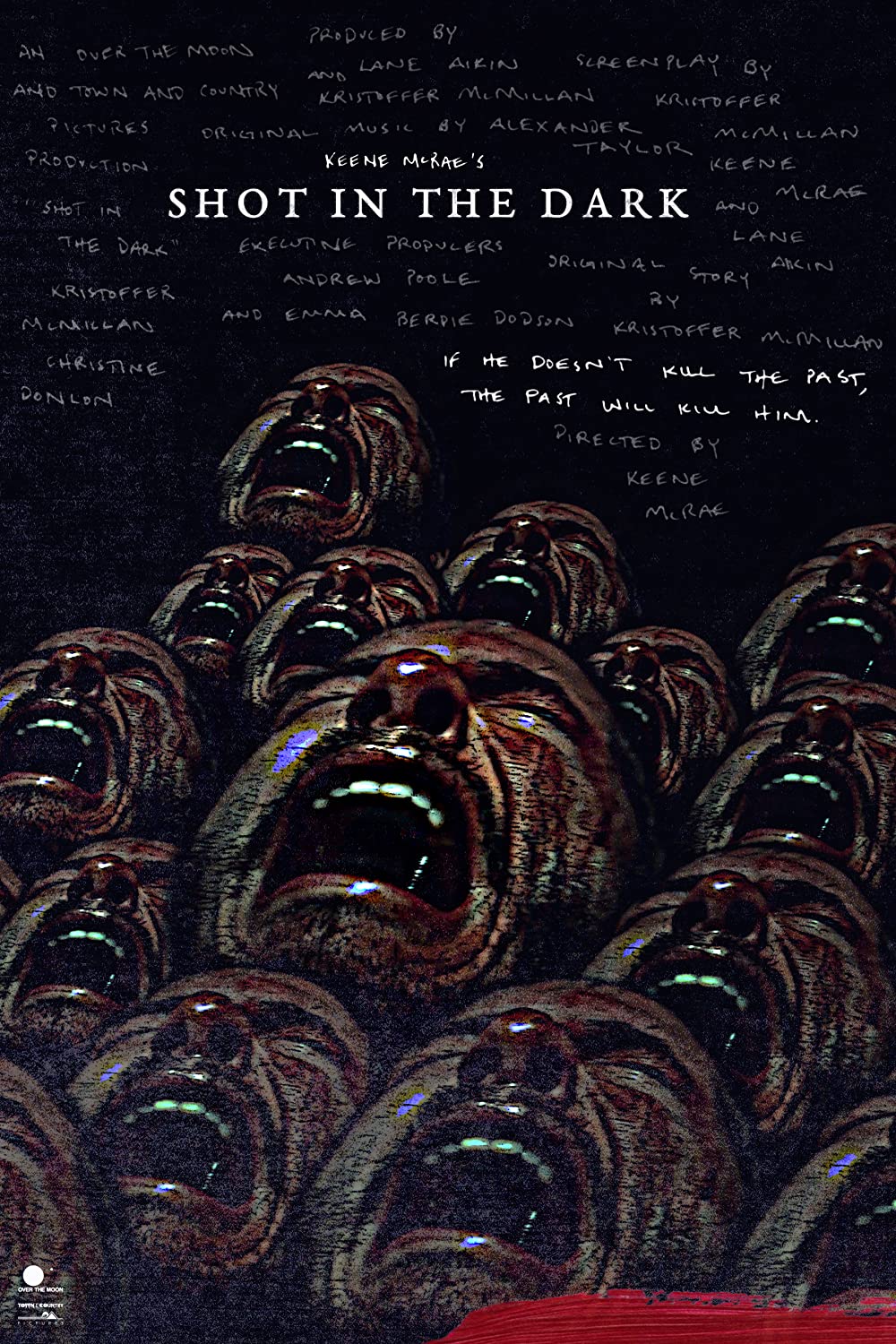
Shot in the Dark is now available on UK digital platforms, courtesy of Reel 2 Reel Films
On a technical level, the setting is realized well as a strong atmospheric tone. The cinematography of Shot in the Dark – handled by DP Ryan Baker and Vlad Akushevich – comes across as quite gorgeous and stunning. We get plenty of establishing shots of Will’s hometown that deliver a sense of place and scope. This is handled in a very economical way as, although we only have a few locations, each one manages to breathe enough life that it feels complete. Maybe not as complete and dynamic as something like Twin Peaks, but I felt I could easily imagine this city’s energy by the time the credits rolled. Interestingly, the film charts a headier path as the serial killer plot ramps up and also doesn’t shy away from the brutality of his actions – gore appropriately ensuing. I don’t think you could ever say it is an exceedingly gory film, but the moments that do unfold are successful – they’re hard-hitting segments of some worth.
Undoubtedly, one of the great wonders of cinema is the synergy of sound and visuals, creating an experience that exceeds either independently. The score is downright incredible and I was admiring this throughout the film. It was composed by Alexander Taylor who should be familiar to anyone that has managed to check out the Scream Queen documentary, chronicling the second Nightmare on Elm Street film and its lead, Mark Patton. I am not a regular collector of film scores, preferring to only acquire personal favourites, but this is one I desperately want in my collection. I wouldn’t say it is particularly bombastic or significantly stands out in some way, however. If you’re familiar with a lot of A24 films, it has a similar sort of moody atmospheric vibe going on, but it always managed to perfectly accentuate the scenes and the early sweeping shots moving through the town frame just the right tone when backed with this music.
The first act of Shot in the Dark spends a lot of time establishing Will’s situation as he does his best to get along. Most notably, we are shown the disconnect with his original friend circle that has stuck around town. Tragedy aside, it is clear that he has become a very different person from who he used to be. There’s a pretty tough moment when they gather at a local diner and are all discussing the recent serial murders. Given what he’s been through, that’s all a bit much for Will prompting an outburst which gets answered by one of his less sensitive friends asking what his deal is and reminding him that it’s already been two years since his personal tragedy. It’s incredibly frustrating how boneheaded he comes across, but it also shows something poignant about the struggle with grief. While it is easy for some, especially those less directly involved, to make their peace and move on for others, time can seem to effectively stop for them.
I’ve spent a lot of time focused on just the drama side of the film, but don’t think the serial killer aspect is diminished in any way. The film actually opens properly on that front with a bit of stock documentary-style opening with exact dates and times telling us of a killer that has claimed five victims and left their body parts in packages around town for police to discover. Viewers are then given the date when the killer is found and pronounced dead. Will’s story is set amid these days so we know out of the gate there is some heavy backdrop behind everything. Some early cuts reveal the killer but not their face as we see they have a penchant for timing their activities and noting how long it takes them to go from place to place. We also spend some time with several different members of the police force as they move past finding the aforementioned packages and working through trying to identify the bodies while searching for any clues.
Despite its incredibly strong start, it is the progression and blending of these two narratives that start to muddy the water. After blowing off a local party with his friends, Will finds himself jumped by the killer and dragged into the basement of his house. Tied to a chair and surrounded by plastic lining everywhere, Will begins to drift between consciousness and even more non-linear flashbacks. When present, we get some pretty well-done and gruesome scenes of the killer butchering and carving up his victims before his captive guest. Will meanwhile seeks some kind of motive and answer for what’s going on as he tries to place the killer’s familiar face.
Seems like a fun enough twist, but this is effectively the rest of the film until the very final act and to me, it really suffered for it. It does not sound like a bad idea in theory, but I often found myself scratching my head in confusion or checking the remaining time left. It is exceedingly hard to detail my hang-ups without delving further into spoiler territory. I do think there are enough interesting things going on here, especially on a technical filmmaking level, that if you have any interest at all, then it is absolutely worth your time to check out and you will probably be rewarded for the less you know, beyond the general synopsis, going on. I’ll avoid spoiling the ending or the most critical twists, but for the curious, I will dig a little deeper to try and hash out my feelings.
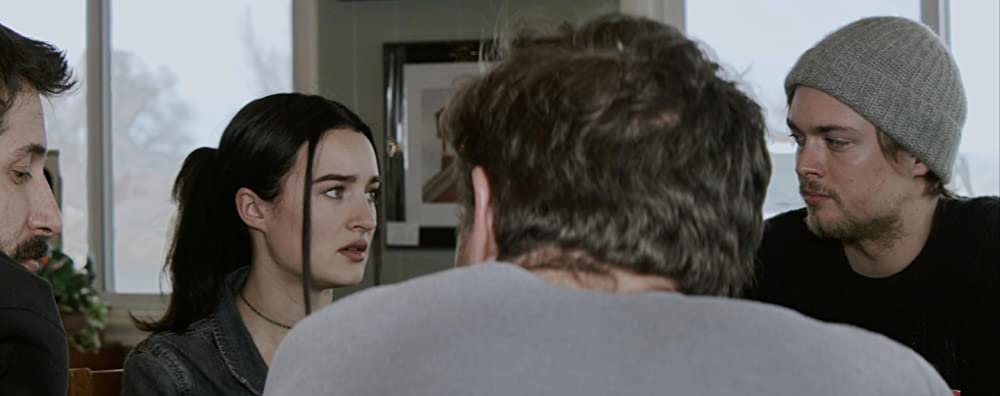
My biggest struggle with the non-linear flashbacks is that at times they felt like they were fighting against the overall narrative at hand. Any given flashback could at times give some new bit of information, be an irrelevant bit of small-town drama to provide world-building, or feel decidedly out of place in the scheme of things. It never quite felt akin to something like Memento with a very meticulously mapped out timeline where every clue dropped was carefully arranged. Instead, it felt much like wading through a bog with moments that left me asking why juxtaposed with more satisfying revelations.
To really strike at the heart of it, you have to know the tragedy that the story dances around in its early moments. After first leaving his hometown and becoming a successful writer, Will returned for a short break to visit his friends. During this time he met Lilli (Chrstine Donlon) and fell hopelessly in love. While his friends brush this off as a passing fling spurred on by his newfound fame, it blossoms into something far more serious and eventually marriage, a house, and plans for a family. Two years ago that all changed with her murder. At times, it feels like the film wants to suggest that perhaps Will killed her but it is an awkward sort of red herring because we are shown definitively that there is a serial killer and that he is likely also a person who used to be involved with Lilli. We also learn that he is known to be difficult and obsessive, wasn’t cool with her breaking things off, and was also likely responsible for her death. Yet, well after knowing these facts, we’re given flashbacks of Will and Lilli having brutally impassioned arguments as if to incriminate him further.
I’ll be my own devil’s advocate and suggest that maybe those moments are just to build Will’s own sense of regret. There can be nothing worse than struggling with this kind of loss when you also have to contend with the things you’ve said and done that you maybe never got the chance to work out and reconcile over. Unfortunately, we do have this serial killer story and there is some mystery being strung along about the who and why so these moments often felt more like they got in the way than offered some proper development. I hate to say it, but I almost feel like the film would be better served and told in a more linear fashion. Perhaps not in entirely chronological order, but a more straightforward and clear telling of the past events would have left me with a better feeling personally.
The killer is my other big hang-up. We are never given much insight into his mindset or who he is outside of his obsession with Lilli. Yet, he proceeds to execute a comic book supervillain level of a carefully orchestrated plan that honestly stretches belief. This may just be a personal issue, but as a true crime fan, stuff like this really pulls me out of a film. For me, it has something to do with the assumed reality of a story. The audience never questions that Hannibal Lecter is this legend among genius mastermind serial killers because regardless of what format you’re getting the story in there is time spent to establish who he is and the character’s mentality.
Here, we’re given a very real, very documentarian-style look at a world that’s effectively identical to our own. And yet the killer is able to so perfectly outwit everyone and frame people’s perceptions of his crimes that it left me shouting at the screen in frustration. The sad truth is that most serial killers are idiots that attain their grim status by preying on people’s predisposition to be kind and understanding or by slipping through the cracks of the legal system’s failings. The killer here reminded me of The Poughkeepsie Tapes which hits equal levels of stunning disbelief that someone could so perfectly frame someone else for their crimes, never get caught, and never leave a shred of evidence or doubt.
There is one particular decision our killer makes that really stretched my belief beyond the breaking point. I won’t spoil it, but you’ll know when it hits because it is easily the most brutal and stunning moment of the film. It is surely one of the best scenes as far as the effects go and they really sell it quite well. Until you look at the event in the greater scheme of his plan. There’s no way this act wouldn’t leave lingering questions. Even the most bumbling of podunk Halloween 5 style cops would have to give it a pause. The film opens attesting it is based on true events, but after some cursory searching, I was unfortunately unable to find a similar case. Of course, horror fans will know the history of such framing devices. Maybe it is entirely plausible and I am blowing a lot of unnecessary smoke, but even trying I have been unable to convince myself.
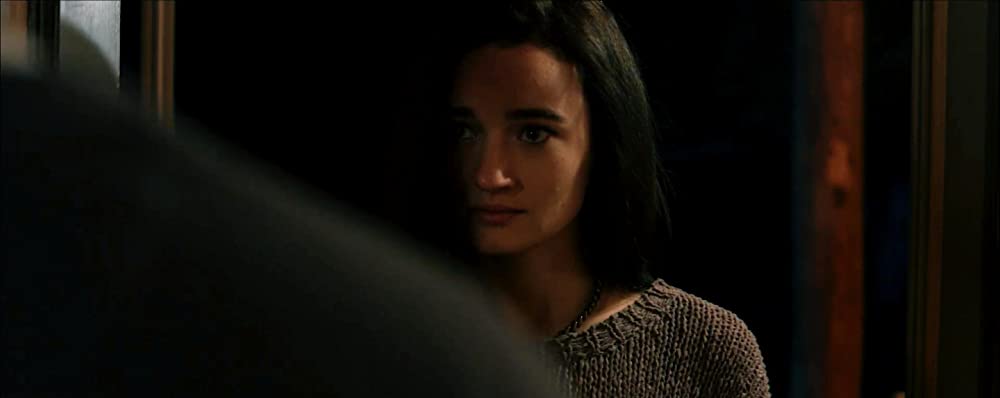
For me, that’s the danger with this style of storytelling. Played right, you can certainly end up with an enduring masterpiece that demands from its audience to be revisited and mined for deeper meaning. However, when it doesn’t land it tends to create a cascade of issues. Shot in the Dark has a really brutal very awesome serial killer story and a quite moving emotionally poignant drama about small town life and struggling with grief. However, I am not so sure how well those two stories mesh together and neither felt especially well served by being blended up and remixed through a series of non-linear flashbacks. Films like Lost Highway or Mulholland Drive thrive because while there is a generally clear throughline story, they also place up a mirror to the audience and entreat each viewer’s own interpretation. I just don’t think Shot in the Dark has that quality.
There is a great story here, but I didn’t feel like there was anything open to personal interpretation beyond that and the non-linear format only served to make things murkier than they needed to be. The lack of certain details only provided further frustration. I generally consider myself a careful and attentive viewer, but I have to admit that I found myself scrubbing back to several scenes after the credits rolled to double-check and make sure that I had not missed some key bits of info. It is hard to clearly quantify that feeling of completely loving the general aesthetics of a movie and the overall concept, but something about it just doesn’t work for you. Because the parts that do shine are so well done and effective, I think it accentuates the other elements that I did find off-putting or frustrating.
Make no mistake, there is an incredible amount of talent that has gone into Shot in the Dark and when streaming platforms are churning to have a constant flow of content, your own time won’t be wasted giving this one a chance. Even if it didn’t quite work for me, it is still one hell of a debut and I am both intrigued and eager to see what works might follow in the future.
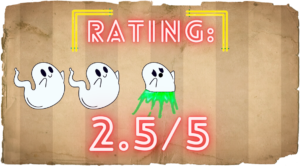
Shot in the Dark was screened as part of Grimmfest 2021.
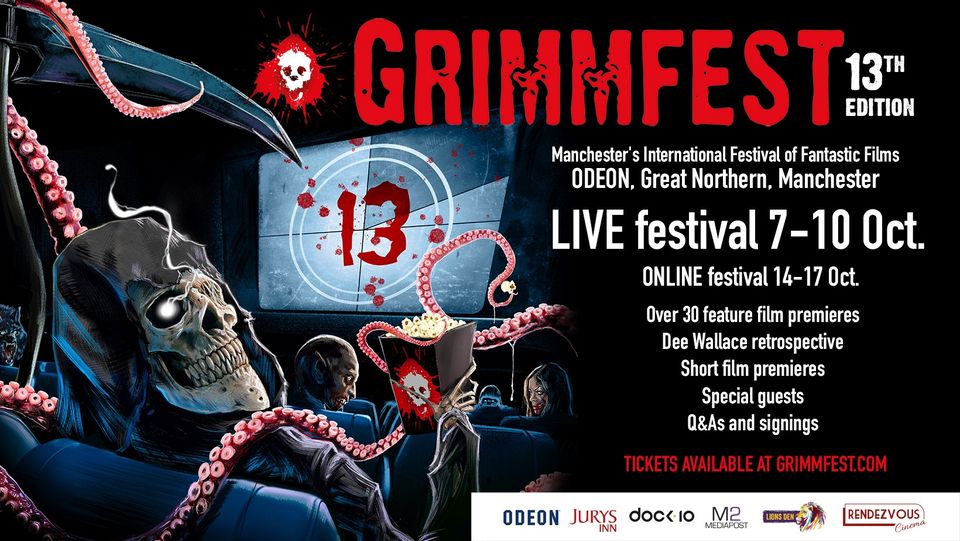
More Festival Coverage
Razzennest (2022) Film Review – A Unique Experiment in Aural Terror
“South African enfant terrible filmmaker and artiste-cineaste Manus Oosthuizen meets with Rotten Tomatoes-approved indie film critic Babette Cruickshank in an Echo Park sound studio. With key members of Manus’s crew…
Japan Film Fest Hamburg JFFH 2021 – Short Films Spotlight
One of the biggest highlights of the Japan Film Fest Hamburg rests within the diverse selection of short films. For the audience, this means getting the chance to see original…
Luzifer (2021) Film Review – Religious Fervor and Unforgiving Isolation
“Every day we stray further from God’s light” may be a ‘meme-able’ saying, but it is one that is none-the-less true when we look at a mix of contempt and…
Disappear Completely (2022) Film Review – The Horror of Losing Oneself
Santiago Mendoza (Harold Torres) is a successful tabloid crime photographer in Mexico City, who has developed a hard exterior in order to deal with the extreme violence he photographs. One…
Legions (2022) Movie Review – Aging Shaman vs. Self Help
Fabián Forte’s Legions, an Argentine horror-comedy that premiered at the 2022 edition of the Fantaspoa Film Festival, is a delightful concoction bound to please fans of Sam Raimi, Alex de la…
Torn Hearts (2022) Film Review – Hagspoitation From the Other Side
What did we get in the end? Constant pressure. Unmet expectations. Workhorses! All for a bunch of men that did not know what to do with us on the wrong…
Dustin is a potentially overqualified office worker who has a lifelong love and fascination with Japan and all things Horror. With a bachelor’s in English Literature and a master’s in Library Science, he devotes way too much time to researching and thinking critically about the media he enjoys. When not celebrating trashy horror films, anime, and idol music, he can be found raving about all things genre cinema as a co-host on Genre Exposure: A Film Podcast or indulging a passion for storytelling through tabletop roleplaying games.
